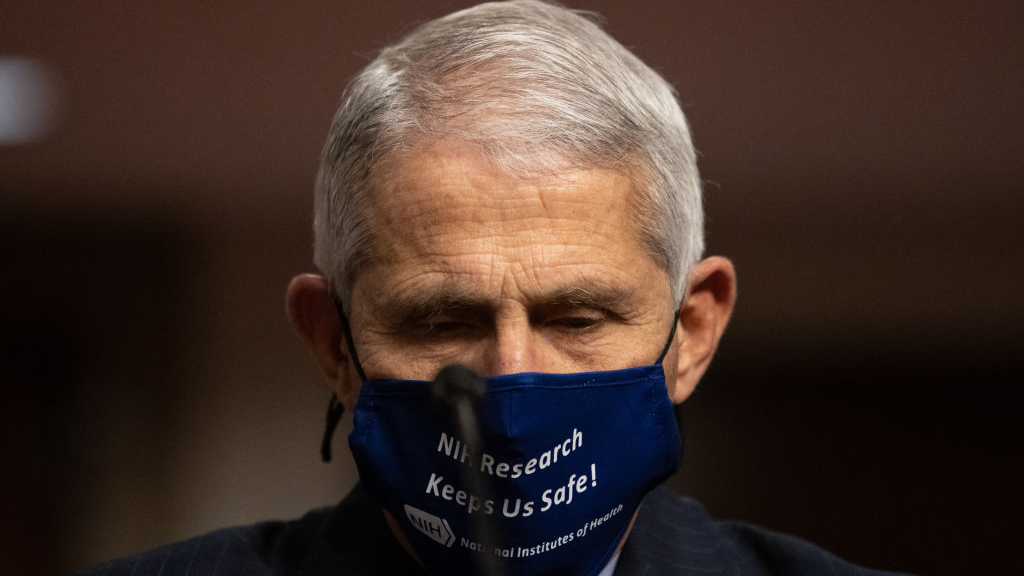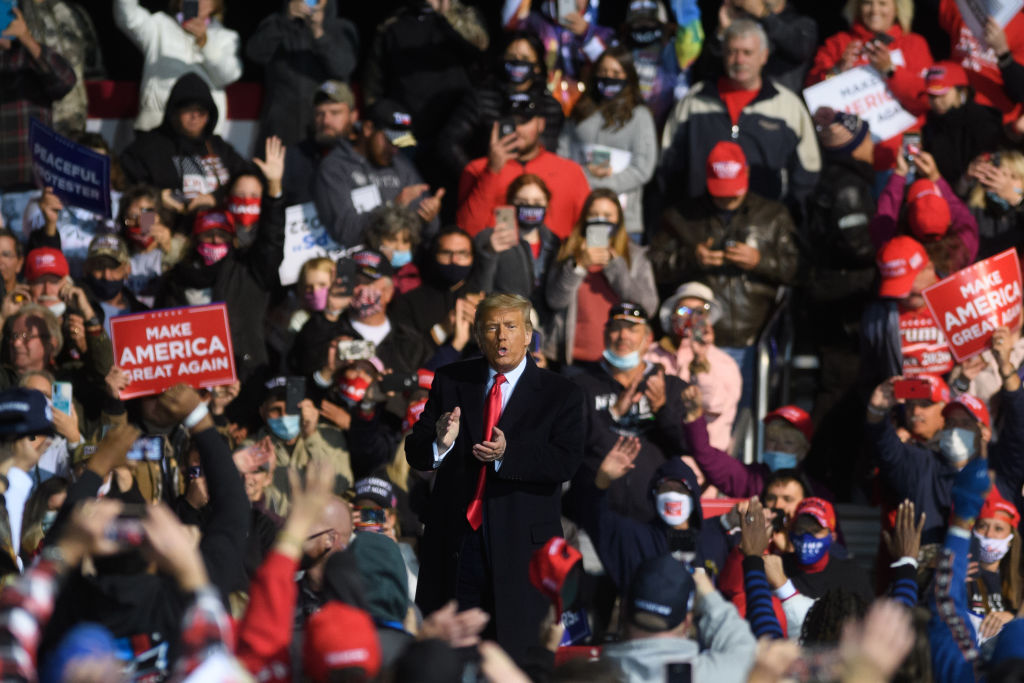
Anthony Fauci, director of the National Institute of Allergy and Infectious Diseases at the National Institutes of Health, Washington, D.C., September 23, 2020. /Getty
Anthony Fauci, director of the National Institute of Allergy and Infectious Diseases at the National Institutes of Health, Washington, D.C., September 23, 2020. /Getty
Editor's note: Bradley Blankenship is a Prague-based American journalist, political analyst and freelance reporter. The article reflects the author's opinions, and not necessarily the views of CGTN.
U.S. President Donald Trump on Tuesday launched yet another ill-advised Twitter attack, this time against Dr. Anthony Fauci, the nation's top infectious disease expert. Referencing Fauci's poor first pitch at Nationals Park in Washington D.C., Trump said that his pitching arm is "far more accurate than his prognostications."
The president's enmity against Fauci is no doubt because he, like the entire medical community, is stressing the need for face masks and social distancing because a huge spike of COVID-19 is expected in the autumn and winter.
"We have a baseline of infections now that varies between 40 and 50,000 per day. That's a bad place to be when you're going into the cooler weather of the fall and the colder weather of the winter," Fauci told CNBC, warning that the U.S. is in "a bad place now."
Mask wearing, social distancing, avoiding crowds, washing hands frequently and doing more things outdoors are all things that could help quell the spread of the disease, according to Fauci. If not, Fauci said, "I think we're facing a whole lot of trouble."
Trump's anger at these statements from Fauci, which are actually just a reflection of the reality as it exists, is purely politically motivated and also deeply hypocritical.

U.S. President Donald Trump speaks to supporters at a rally at John Murtha Johnstown-Cambria County Airport in Johnstown, Pennsylvania, October 13, 2020. /Getty
U.S. President Donald Trump speaks to supporters at a rally at John Murtha Johnstown-Cambria County Airport in Johnstown, Pennsylvania, October 13, 2020. /Getty
First, the COVID-19 spike this autumn is only going to further harm Trump in the polls as states reinstate restrictions on movement and businesses, and the fact that more people will become sick and die.
Despite his claim that his COVID-19 treatment is a "cure," Trump is trying to turn the public's head away from the very real fact that the country has not "turned the corner" on the virus in order to help his polling.
Second, Trump is hitting the campaign trail again after testing positive for COVID-19 and being cleared by his doctors.
By drawing huge crowds and attending in-person fundraisers, Trump hopes to energize his base, gather volunteers, raise cash and ultimately turn out the vote for his side.
Fauci's prediction undercut this as a viable political strategy – having large gatherings during the second coronavirus spike will be seen as polarizing, dangerous and foolish.
The president has downplayed the virus that has killed over 210,000 Americans since it first came on the nation's soil and there is little reason to believe that he would stop now.
But what is quite hypocritical about the continual hits against Fauci is that, while Trump constantly ignores him and belittles his expertise, the Trump campaign apparently values at least some of his words.
For example, the Trump campaign has been using out-of-context statements from Fauci which seem to praise the White House's coronavirus response in a new campaign ad.
"In my nearly five decades of public service, I have never publicly endorsed any political candidate. The comments attributed to me without my permission in the GOP campaign ad were taken out of context from a broad statement I made months ago about the efforts of federal public health officials," Fauci told CNN, adding that the Trump campaign should pull the ads.
Putting Fauci in a position where he'll have to engage in the political theater leading up to the election is not only a terrible political strategy, it's extremely dangerous. He is the nation's top infectious disease expert, one of the brightest in the world, and he must play a non-politicized role in the coronavirus response – especially as the autumn and winter spike hits. His public appearances and statements should be reserved for key medical information and not partisan bickering.
To be sure, both political parties have certainly used Fauci as a political football of sorts by using various statements of his as a ploy to advance their political agenda. But it has not been Fauci himself that has actually engaged politically at all and he would prefer that it stay that way.
As always, it is the president who is refusing to yield; throughout the crisis, Fauci has maintained a cool demeanor – remaining diplomatic in the face of an unreasonable president and staying true to his public mandate in order to try and salvage the situation. He is also smart enough to realize that if he were explicitly critical of the president, it would mean that he would be sidelined as many other competent officials have been through the course of the Trump presidency.
That is to say that Trump has surrounded himself with enablers and those who sing his praises, but Fauci is a straight-talker. The president has a history of lashing out against those on "his side" should they defy his false interpretation of reality even slightly, while amplifying those who say anything to feed into it. Suffice it to say, Trump and the country would benefit far more by simply letting the doctor do his job because straight-talk is needed now more than ever – and polling indicates that voters want it, too.
(If you want to contribute and have specific expertise, please contact us at opinions@cgtn.com.)